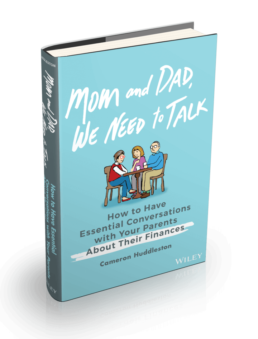Nothing sparks dread in me like a school fundraiser.
Don’t get me wrong – I’m more than happy to help support my children’s schools. But I can’t stand the pressure that comes with school fundraisers.
I’m not talking about the pressure to talk my friends and family into buying stuff they don’t need (I do hate this, though). Nor am I talking about the pressure to open up my own wallet. I’m talking about the pressure from my 7-year-old son.
The Pressure of School Fundraisers
My son’s elementary school has been in session since early August, and we were saddled with a fundraiser for new playground equipment right out of the gate. He came home from the first day of school with a flyer about a “fun run.”
I knew the drill already because his school had done a fun run in the spring – also to raise money for playground equipment. (I guess they didn’t raise enough the first time around.) The kids were supposed to ask friends and family to donate anywhere from $1 to $10 for each lap they run, up to 35 laps.
Let’s get real, though. The parents typically end up doing the asking, and I didn’t have anyone to ask. My dad is no longer living. My mom has Alzheimer’s disease. My husband’s family lives in another country. Most of my friends have kids who also are doing fundraisers. And the few family members I could ask I had already hit up in the spring for a donation. Plus, I simply hate asking people for money, regardless of the cause.
So I decided to make a relatively generous donation. I logged online the first night of the fundraiser and agreed to contribute $5 for every lap my son ran – which would amount to a $175 contribution after he ran the 35 laps in the fun run.
The next day when I picked up my son at school, he was so excited when he got in the car about all of the prizes he had won for the fundraiser donation he had collected. In fact, he said the other kids were jealous because he had gotten the most prizes that day thanks to my $5 per lap donation.
I want to be very clear that I didn’t make a donation just so my kid could rack up prizes. Nor did I expect that it would be broadcasted to his class the amount of donations my son had gotten. In fact, this bothered me. And those prizes really bothered me.
The fundraising companies are just like grocery stores that put candy in the checkout line. They know kids will harass their parents until they get what they want – in this case, more donations to score more prizes. And, boy, did my son want more prizes.
My Son’s Desire to Keep up With the Other Kids
Since my son entered elementary school two years ago, he’s paid close attention to what his classmates have. He’s always talking about how a friend has some toy or game that he must have, too. I always tell him, “No.”
It gets exhausting, though, listening to him ask again and again for something a friend has even though I explain to him every time that there will always be people who have more than he does – and that’s OK. I remind him that he already has a lot and should be grateful for what he has. That lesson has sunk in with my daughters, who are 15 and 13. But my son continues to ask for more, more, more. Heaven forbid that some other kid has something he doesn’t.
So the next day after my son was so excited about the prizes he had collected, he got in the car on the verge of tears because he hadn’t collected any more donations and hadn’t won the items other kids were now getting.
He started begging me to make another donation or to ask his dad (my husband) to chip in. I explained to him that our family had already contributed as much as we were willing to give and that Dad wouldn’t be making a donation.
Combating My Son’s Desire to Have What Others Have
A few days later, the begging got more intense. If he got a $2 per lap donation, my son said he could win this really cool toy that was like a hula hoop for your arm. He just had to have it. So I gave him some options.
I told him he could use his own money. I often tell my kids that they need to use their own money to buy things they want but don’t need – such as toys that I know will end up in the back of the closet within a week. So I told my son that he could donate his own money to the fun run to get the prize he wanted.
He pulled out all his cash and dumped all his coins on the floor to see if he had enough to make a $2 per lap donation. After counting his money, he realized that he was $10 short.
I gave him a cheaper alternative. I loved the idea of having my son contribute his own money to his school fundraiser. However, I knew he was really just after one thing – that toy. So I found a pack of two of those arm hula hoop/slinky things on Amazon for $9 and showed my son that he could pay much less if he simply bought them online.
Of course, he was thrilled.
But I made him wait before buying. One of the benefits of being a personal finance journalist as long as I have been is that I’ve learned lots of great tips from experts over the years on how to control spending. So I tried one out on my son – and I recommend that you try it with your kids or yourself.
I told my son that he couldn’t buy the toy right away. Instead, I said he would have to wait until the end of the week to see if he still really wanted it. He was sure that he would.
The next day, he told me he still wanted the toy. He reminded me that he still wanted it the following day. But after he ran the fun run on Friday and went to a friend’s house for a pool party that night, he had forgotten about the toy. I haven’t heard about it since.
Now, the school book fair has started, and, of course, my son is eager to spend. I gave him some money, which he used to buy two books. When he started talking about something one of his friends had bought, I told him he would have to use his own money if he wanted anything else.
I don’t expect my son’s desire to keep up with the Joneses in his classroom will wane anytime soon – but neither will my desire to teach him to stop wanting what others have and to be happy with what he has. And I think I have the upper hand in this battle.
Don't Miss Out! ORDER NOW!
"An excellent step-by-step guide to navigate what can be time-consuming, uncomfortable conversations."
- Michelle Singletary, The Washington Post
Related Posts

Cameron Huddleston
I am the author of Mom and Dad, We Need to Talk: How to Have Essential Conversations With Your Parents About Their Finances. I also am an award-winning journalist with 20 years of experience writing about personal finance. My work has appeared in Kiplinger’s Personal Finance, Forbes.com, Yahoo!, MSN, and other online and print publications.





[…] Keeping up with The Joneses […]